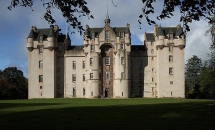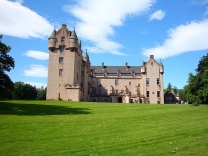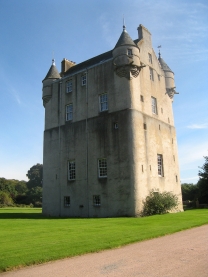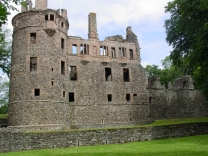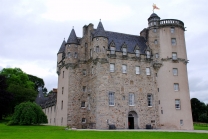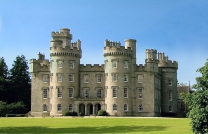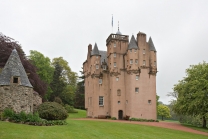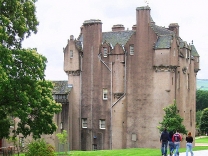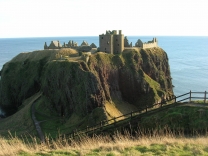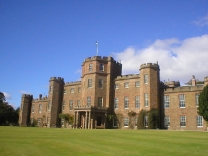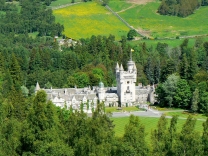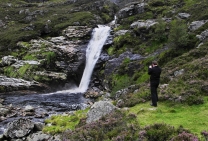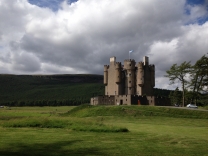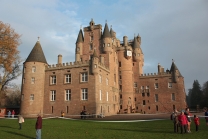Fyvie Castle
No video yet

Fyvie Castle
Fyvie Castle is a castle in the village of Fyvie, near Turriff in Aberdeenshire, Scotland.
History
The earliest parts of Fyvie Castle date from the 13th century – some sources claim it was built in 1211 by William the Lion. Fyvie was the site of an open-air court held by Robert the Bruce, and Charles I lived there as a child. Following the Battle of Otterburn in 1390, it ceased to be a royal stronghold and instead fell into the possession of five successive families – Preston, Meldrum, Seton, Gordon and Leith – each of whom added a new tower to the castle. The oldest of these, the Preston tower (located on the far right as one faces the main facade of Fyvie), dates to between 1390 and 1433. The impressive Seton tower forms the entrance, and was erected in 1599 by Alexander Seton; Seton also commissioned the great processional staircase several years later. The Gordon tower followed in 1778 , and the Leith in 1890.
Inside, the castle stronghold features a great wheel stair, a display of original arms and armour, and a collection of portraits.
Manus O'Cahan and Montrose fought a successful minor battle against the Covenant Army at Fyvie Castle on 28 October 1644. The battlefield is currently under research to be inventoried and protected by Historic Scotland under the Scottish Historical Environment Policy of 2009. Following Victorian trends, the grounds and adjoining Loch Fyvie were landscaped in the 19th century. The Scottish industrialist Alexander Leith (later Baron Leith of Fyvie) bought the castle in 1885. It was sold to the National Trust for Scotland in 1984 by his descendants.
To the East...


